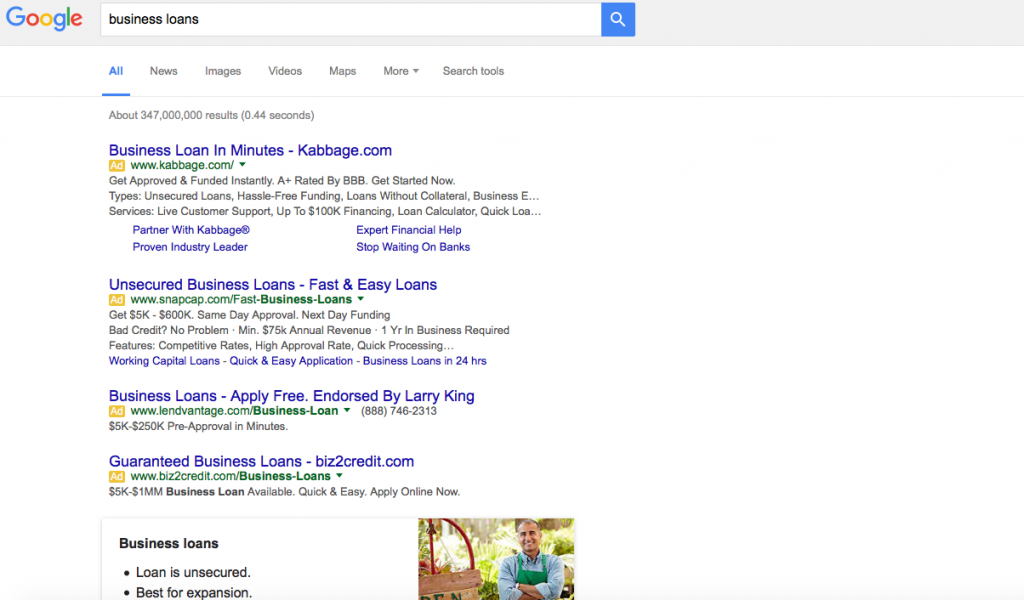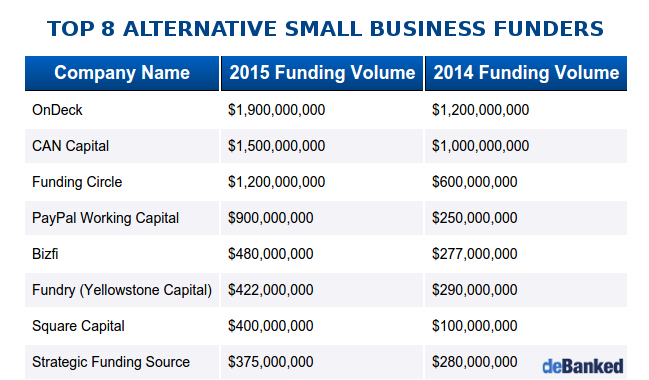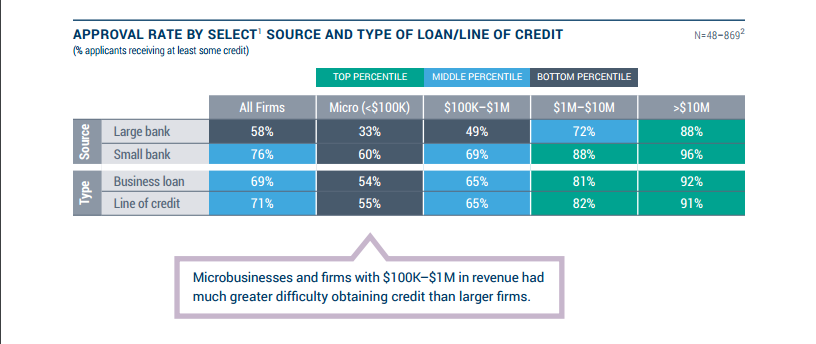Business Lending
Platinum Rapid Funding Group Partners Up With The Asian American Hotel Owners Association
March 29, 2016
NY-based Platinum Rapid Funding Group has become the exclusive funding partner of the Asian American Hotel Owners Association (AAHOA). AAHOA has over 15,000 members and is the largest hotel owners association in the world.
“Our enthusiasm to create this new relationship serves as the galvanizing force that will assure we attain deliverable results for AAHOA,” said Platinum CEO Ali Mayar. The company originated more than $100 million in funding last year alone.
As the largest hotel owners association in the world, AAHOA’s mission is to advance and protect the business interests of hotel owners through advocacy, industry leadership, professional development, member benefits, and community involvement.
“We are delighted to partner with Platinum Rapid Funding and look forward to sharing their services with our members,” said AAHOA President & CEO Chip Rogers.
Platinum’s unique business model is said to have played a role in AAHOA’s selection, including among many other attributes, their “white glove” service.
Small Business Finance Association To Unveil White Paper
March 29, 2016 The Small Business Finance Association (“SBFA”) will soon publicly unveil a set of guiding industry principles, deBanked has learned, and they’ll fall under four broad categories that espouse transparency, responsibility, fair dealings and security.
The Small Business Finance Association (“SBFA”) will soon publicly unveil a set of guiding industry principles, deBanked has learned, and they’ll fall under four broad categories that espouse transparency, responsibility, fair dealings and security.
Transparency will not just be about the disclosure of fees but also likely about the disclosure of process, methodology, and application rejection, among others.
The principles of fair dealings are unlikely to touch on pricing or costs. Instead they will be about a commitment to being truthful and fair in dealings with small businesses. That is sure to include marketing materials that are clear and understandable, an area that will undoubtedly extend out to the brokers they work with, if any.
While responsibility will speak to the notion of being a legally compliant good citizen when it comes to dealing with customers, security will be more than just the use of an SSL Certificate to access the website. Verifying the business’s legitimacy and confirming the owner’s identity are high on the list of a secure process, deBanked has learned.
SBFA members already adhere to a set of standards and have since the group was formed eight years ago. Their new white paper will serve to codify them in a way that others can adopt and conduct themselves to accordingly.
The white paper will be the first major achievement of the organization since Stephen Denis came on as the executive director in mid-December. Denis is the former deputy staff director of the U.S. House Committee on Small Business.
“The goal is to start from scratch and take a look at everything the association is doing,” Denis said in deBanked’s previous magazine issue, “and to really build this out to a robust group that represents the interests of small businesses.”
In another interview conducted for that story, SBFA president and founder David Goldin explained that he had been troubled by misconceptions over the industry’s prices. “Most people don’t understand the economics of our business,” he said.
The SBFA also plans to revamp their website in the near future.
Minority Small Business Owners Have More Income but Less Credit?
March 18, 2016 A third of minority small businesses are run by women and nearly 45 percent of all minority-owned businesses are from California, Florida and Texas.
A third of minority small businesses are run by women and nearly 45 percent of all minority-owned businesses are from California, Florida and Texas.
And most of them run restaurants and beauty services and their average credit score is nearly five points lower than the average for the general small-business population, even though they earn higher and are heel-to-heel in credit card delinquencies. 1.2 percent of minority small-business owners have at least one business credit card account that is severely delinquent (91-plus days) compared to 1.1 percent of the general small-business owner population. And the average consumer income for minority business owners is $92,489, more than the average income of the general small business owner of $92,338.
Credit-reporting company Experian in its new study on small businesses, however said that minority small business owners fall behind on managing credit — 15 points lower than the overall average for small-business owners, to be precise. The report does not explain why.
But “Gaining insight into the trends and behaviors of the small-business community is imperative given its importance to the growth and success of our overall economy,” said Pete Bolin, director of consulting and analytics for Experian, which also released tools and resources on credit management.
The market of lending to minority small business owners is well recognized. Apart from the SBA micro loans and community advantage loans that seek to bridge the gaps, the ‘Equal Credit Opportunity Act’ prevents lenders from discriminating against borrowers based on race and sex.
Google Culls Online Lenders – Pay or Else?
March 15, 2016Can you become one of the biggest or most successful online lenders without Google? A search layout update may be inadvertently culling the herd.
In late February, Google eliminated ads from the right side of the page while adding another layer to the top and bottom. When factoring in features like site links, the effects on organic search has been devastating. Non-paid links are now entirely below the fold for many commercial keywords, which means users may limit their selections entirely to ads. Here’s an example of a full screen browser window on a Macbook Air when searching for Business Loans:

Brad Geddes, a Google Adwords marketing author, expert and consultant, has said the Click-through rate (CTR) on this new 4th ad placement is skyrocketing. “Depending on the keyword, position 4 is going to have a 400%-1000% CTR increase,” he said on Webmaster world. And while side links and bottom links were never a huge factor anyway (less than 15% of click-throughs), Geddes believes a consequence of this change is that fewer ad slots means higher cost bids to rank on the 1st page. “Companies with thin margins are going to have a lot of words fall to page 2,” he wrote.
In summary: Fewer ad placements, higher costs per click, decreased likelihood of organic click-throughs.
And the online lending industry is already feeling the burn. Several funders and ISOs on the commercial side have told deBanked in confidence that the online lead gen battle has been lost or that they have been temporarily sidelined by the increase in costs. At least one funder is refocusing their efforts entirely on the ISO channel after a horrible experience with Pay-Per-Click.
 And it’s not just the costs, it’s the quality of leads, they say. The searchers clicking their expensive ads and running up their bills sometimes literally meet none of the qualifications their ads stipulate. Yet many searchers click anyway, rendering the ads’ carefully scripted messages moot. One study might explain why that is. In it, users spent around .764 seconds considering the first paid search result and a total of only 4.5 seconds scanning the first five results. That’s not a whole lot of time to read each ad, digest them and consider whether or not there’s an appropriate fit.
And it’s not just the costs, it’s the quality of leads, they say. The searchers clicking their expensive ads and running up their bills sometimes literally meet none of the qualifications their ads stipulate. Yet many searchers click anyway, rendering the ads’ carefully scripted messages moot. One study might explain why that is. In it, users spent around .764 seconds considering the first paid search result and a total of only 4.5 seconds scanning the first five results. That’s not a whole lot of time to read each ad, digest them and consider whether or not there’s an appropriate fit.
On one industry forum, ISOs have reported that the cost of acquiring a merchant cash advance or business loan deal from Pay-Per-Click is ranging from $700 to $1,200. “PPC for premium keywords as high as $40 at times. Ugly. Real ugly,” one user wrote. Another user wrote, “It’s not just Adwords that is saturated. The whole market is saturated. Lenders and the onslaught of new brokers are making it tough. Lenders with programs like Funding Circle and Kabbage, and with all the advertising money in the world to burn and get direct traffic.” And still another believes that online ads are simply inviting the lowest hanging fruit. “Internet leads have the highest level of fraud,” said one sales manager.
Notably, many of the top 8 funders are only competing for a limited number of competitive keywords or may not even be running Adwords at all. PayPal and Square for example, focus only on their existing payment processing customers despite being “online lenders.”
It’s too early to tell what effects Google’s ad changes will have on the online lending industry, though a couple of companies who were paying just enough to extract clicks from side ads have indicated the change is for the worse and they have suspended their campaigns.
The natural alternative to paid search, organic search, is seldom discussed anymore as a realistic strategy these days, in part because the rankings might be rigged anyway.
One irony that’s pervasive in the online lending industry is that borrowers are being targeted offline where it’s potentially more affordable. In a discussion thread that garnered 76 posts last fall, ISOs and funders suggested that direct mail, referrals, UCCs, cold calling, radio and even going out and shaking hands, were pegged as “what’s next” for marketing. Pay-Per-Click was only mentioned once and only in the context of it being something that had long ago been made too expensive for small and mid-size companies.
The cost of making these things work might be why so many funders are hoping that brokers can figure it out. “We decided that the best way to grow is to build relationships to avoid the overhead, compliance, training and manpower that a sales team would require,” said Nulook Capital’s Jordan Feinstein in an interview with deBanked last month.
With Google becoming even more competitive now though, perhaps United Capital Source’s Jared Weitz summed it up best. “Marketing is getting more expensive and only the ones who can afford to pay can play,” Weitz said.
The Top 8 Small Business Funders
March 13, 2016Whether they do loans or merchant cash advances, here are the top 8 alternative small business funders:

This list originally appeared in a story about Square’s Q4 Earnings and has been republished individually here in case anyone missed it. The figures were either disclosed to deBanked directly or are a best estimate based on publicly available materials. This list is not comprehensive and in instances where no reliable data could be obtained, the company was just omitted. A larger list will appear in deBanked’s March/April Magazine issue so make sure you subscribe if you haven’t already.
Bank Strikes Back Against Online Lenders – Offers 5 Minute Business Loans
March 12, 2016Online lenders have new competition, a 198-year-old bank based in Boston, Eastern Bank. Worried that technology would leave them in the dust, Eastern has invested millions in an application and underwriting system that can fund merchants up to $100,000 in 5 minutes. “The 55 requests for information on the old form have been replaced by eight,” according to the WSJ.
Rates range from 6.99% to 9.99% and it’s only available to existing customers. However a new customer only need open a checking account to become immediately eligible for it. One out of the 36 original borrowers on this program has already become delinquent on their loan, a statistic mostly within their expectations, the WSJ reports.
Eastern makes no mention of their speedy capabilities on their website, which still has the old paper application available for download.
Notably, former NFL player Doug Flutie, Eastern Bank’s spokesman for over 10 years, is scheduled to appear on the upcoming season of Dancing With the Stars.
Big Banks Less Transparent Than Online Lenders Federal Reserve Study Finds
March 4, 2016The results are in. Dissatisfied small business borrowers are more likely to encounter transparency problems with big banks, not online lenders.
The margin of difference on this measure may have been razor thin, but the anti-online lender rhetoric isn’t matching up with borrower feedback. The 2015 Small Business Credit Survey, a comprehensive report released by the Federal Reserve, found that 33% of borrowers that were dissatisfied with a small business loan from a big bank, cited a lack of transparency as a reason. 32% of borrowers that were dissatisfied with an online lender cited a lack transparency. While both statistics show room for improvement, the results shatter the myth that online lenders are uniquely lacking in transparency.

 The findings are also consistent with the results of a previous Federal Reserve study in which small business owners gave extremely high marks to online lenders for clarity (even after researchers tried to trick them). This latest report does not put online lenders in a favorable light, but it does show that a dissatisfied borrower is equally or more likely to be confused by a loan from Chase or Bank of America than they are from OnDeck or PayPal Working Capital.
The findings are also consistent with the results of a previous Federal Reserve study in which small business owners gave extremely high marks to online lenders for clarity (even after researchers tried to trick them). This latest report does not put online lenders in a favorable light, but it does show that a dissatisfied borrower is equally or more likely to be confused by a loan from Chase or Bank of America than they are from OnDeck or PayPal Working Capital.
Small banks were less likely than online lenders and big banks to experience dissatisfaction over transparency.
Online lenders were defined by the Fed as “alternative and marketplace lenders, including Lending Club, OnDeck, CAN Capital, and PayPal Working Capital.” Respondents could select multiple options for dissatisfaction, ensuring that a separate issue didn’t merely trump transparency.
Big banks also scored worse on difficulty of the application process. 51% of dissatisfied borrowers that got a loan from a big bank cited difficulty. Only 21% of dissatisfied borrowers that got a loan from an online lender cited difficulty.
A more difficult, lengthier, and more regulated process at big banks has apparently not led to more transparency with borrowers. The findings echo B. Doyle Mitchell Jr.’s testimony presented during a House Committee hearing last fall. Mitchell, who was speaking on behalf of the Independent Community Bankers of America, said that adding more pages to loan agreements do not make them any more clear to borrowers. “In fact it is even more cumbersome for them now,” he said.
The Federal Reserve’s own study has proven to be consistent with that assessment.
Here’s Why Small Businesses Like Small Banks
March 3, 2016Small businesses like small banks.
The Small Business Credit Survey released by the Federal Reserve revealed that small businesses like doing business with smaller banks mostly with rate of approval and customer satisfaction.
Small banks approved at least some of the amount requested for 76 percent of applicants, while large banks approved 58 percent of the applicants. And when it came to customer relations, small banks scored a satisfaction score (percent of firms satisfied with the experience) of 75 while the big banks earned a score of 51.
And while banks still dominate as an advisory and credit channel, the survey suggested that 30 percent of microbusiness applicants and 22 percent of small firms ($100K–$1M in annual revenues) applied to an online lender, presumably because these applicants consider online lenders to be as credible as the big banks and despite the lower interest rates, the loan difficulty process and the wait for approval has the small businesses seek alternatives to the traditional bank credit system.






























